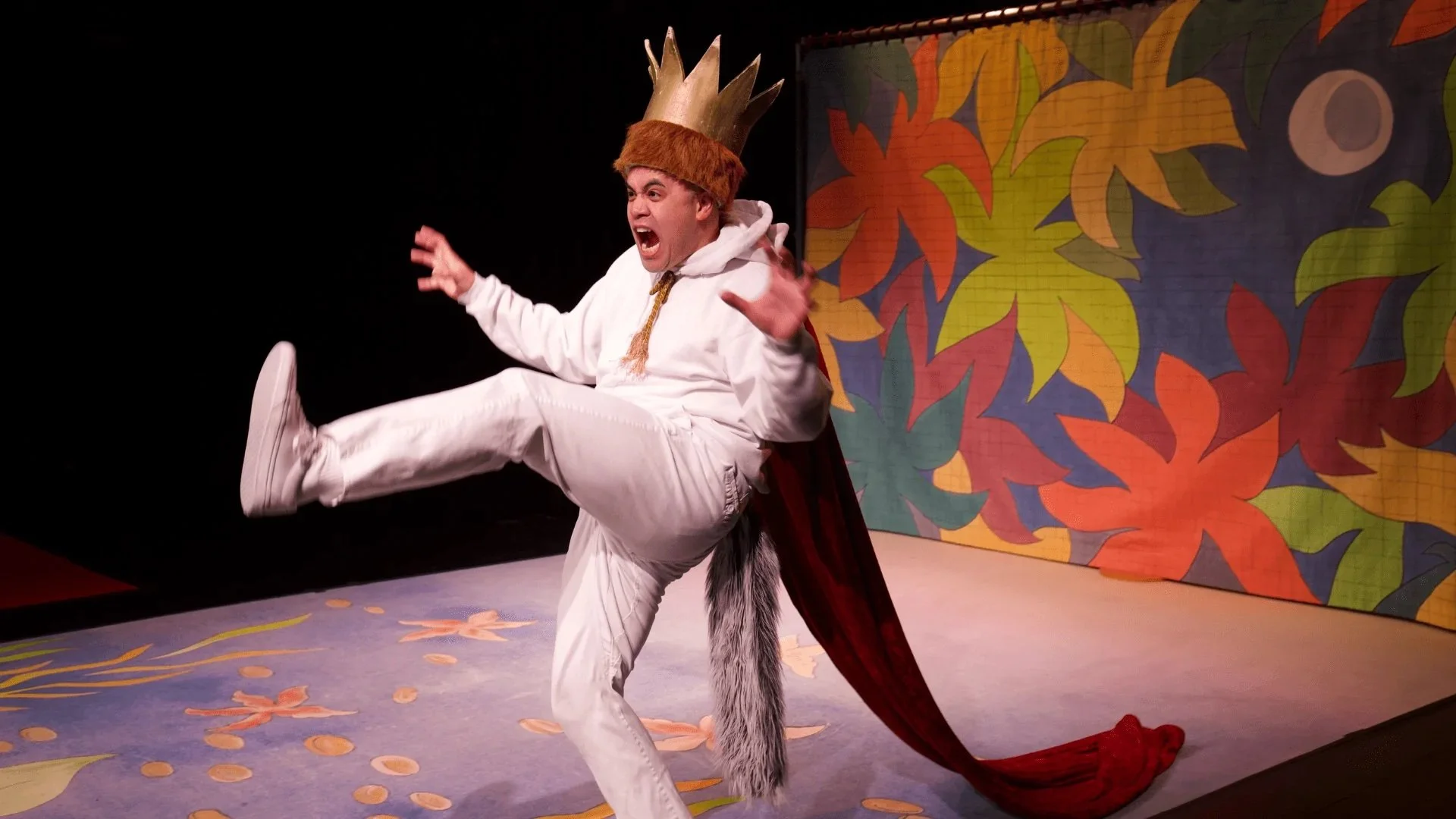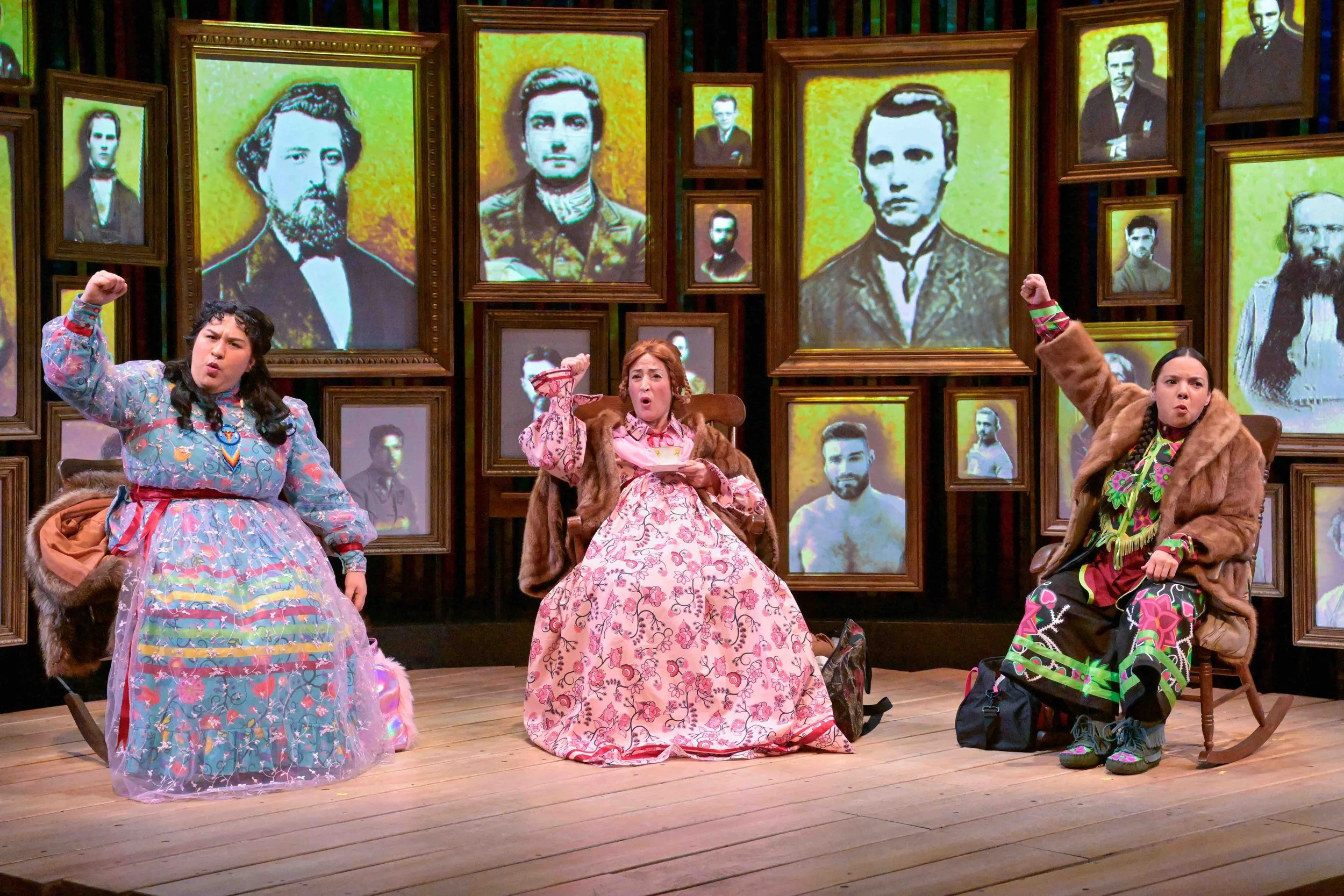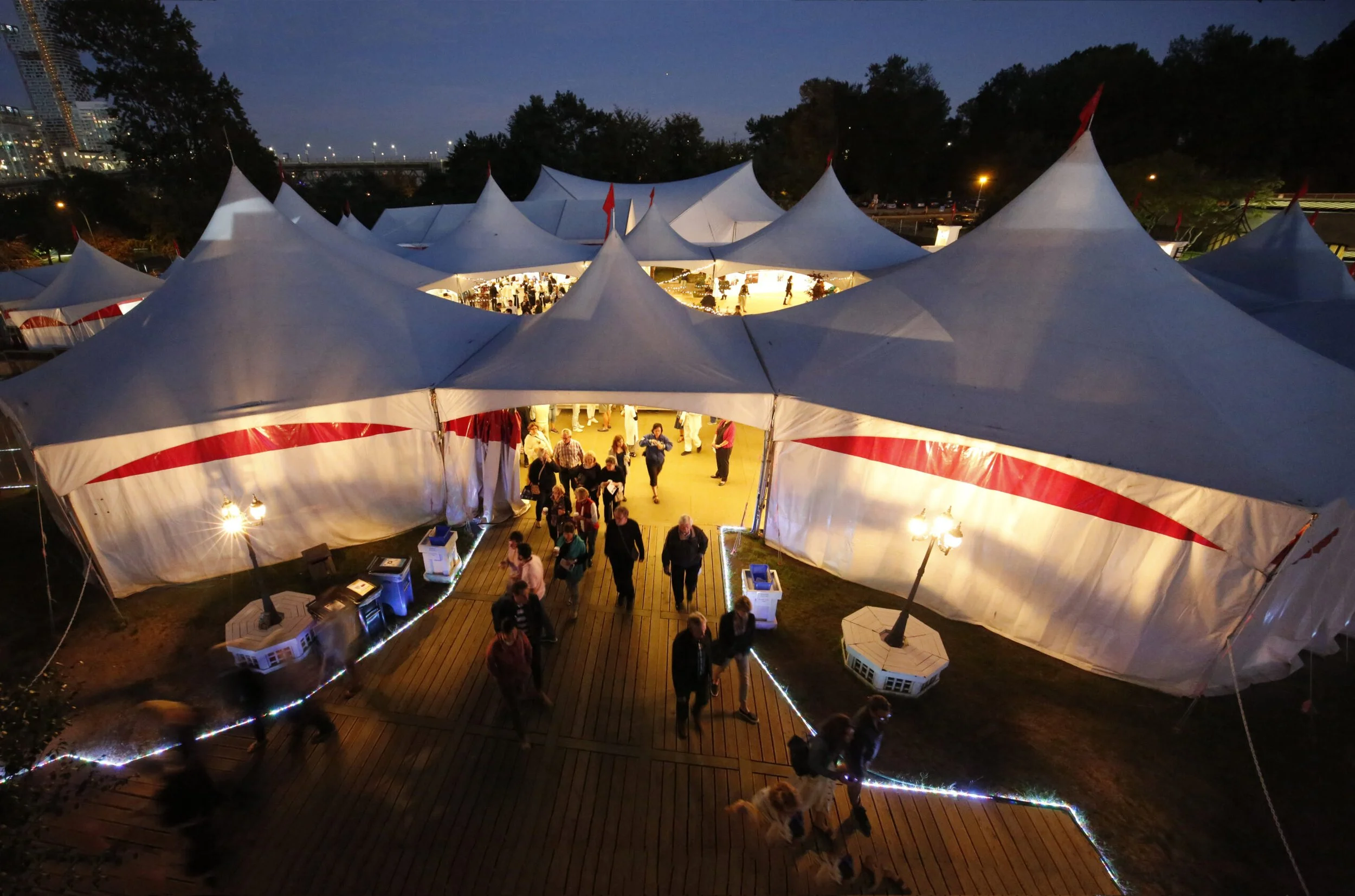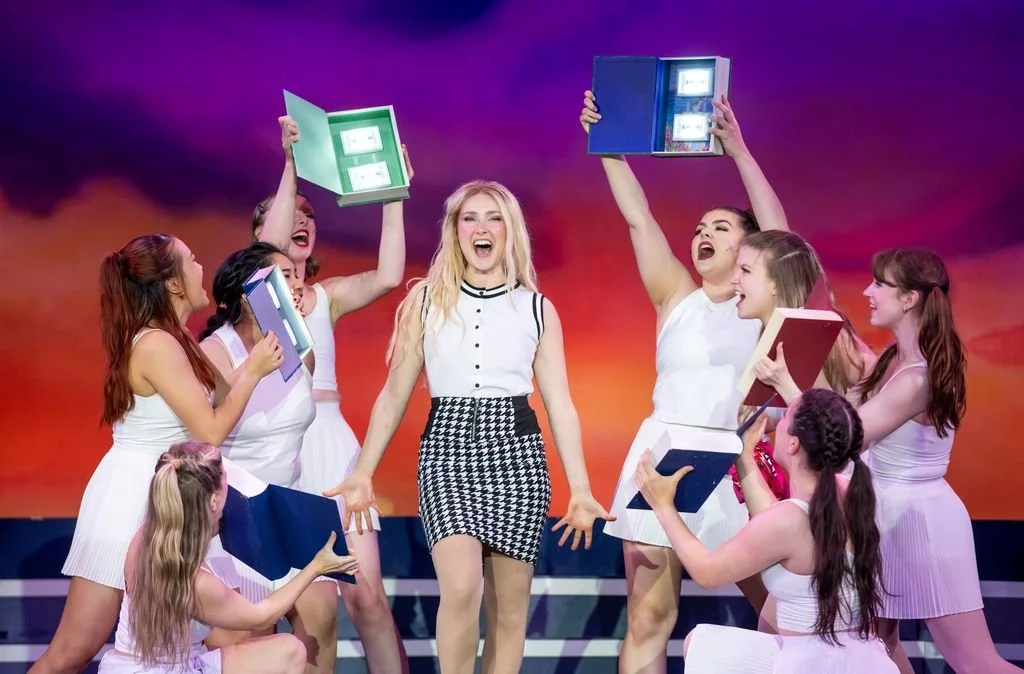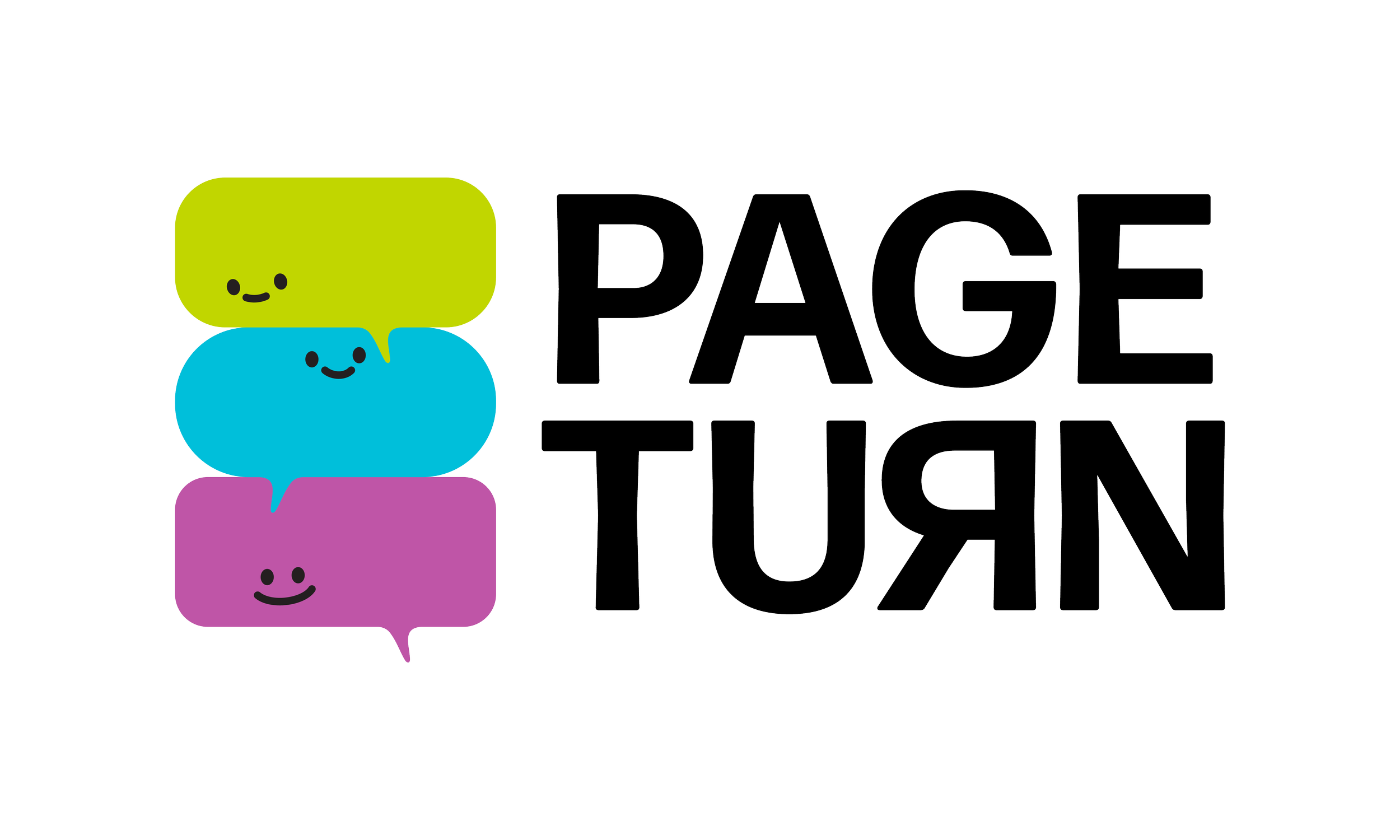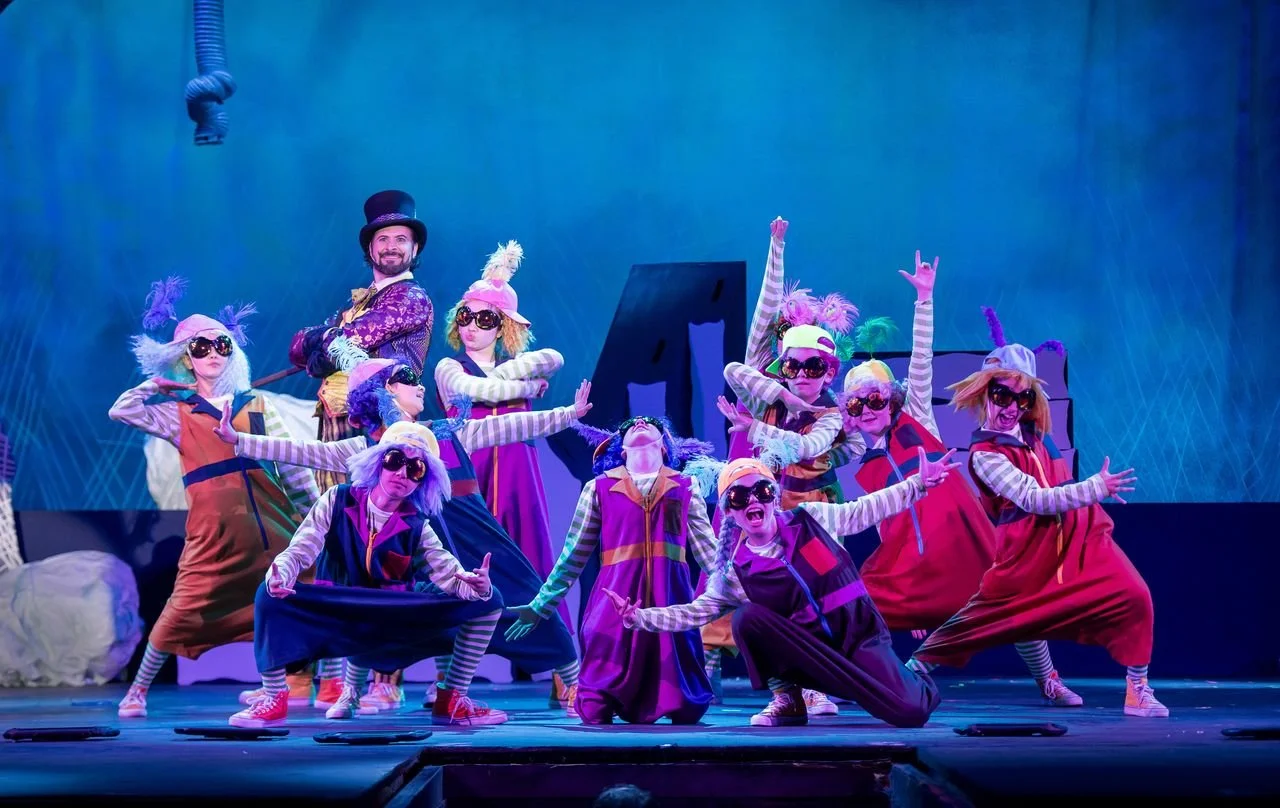Stir Q&A: Virtual Humanity curator Alysha Collie introduces you to Two-Spirit and Indigiqueer stories
Zee Zee Theatre project invites visitors to “check out” a stranger for a conversation
I”I believe that Indigiqueer, Two Spirit and Indigenous folks who are LGTBQ2SI+ have often been left out of visible public spaces,” says Virtual Humanity curator Alysha Collie.
Zee Zee Theatre presents the return of Virtual Humanity, streaming online on November 27 and 28 and December 4 and 5
WHEN THE PANDEMIC pushed a lot of theatre online, Zee Zee Theatre took its mainstay program Human Library online. The idea behind the Virtual Humanity project? Audience members can “check out” a virtual human for a one-on-one candid conversation over Zoom about their life experiences, culture and beliefs.
The latest edition throws a spotlight on members of the Two Spirit and Indigiqueer community—more than 20 in all to choose from, each with their own diverse perspective and background.
Stir talked to Alysha Collie, who curated the latest Virtual Humanity alongside Raven John, Deborah Williams, and Dallas Yellowfly, about what sets this edition apart. Collie is an Indigenous artist from the The’wá:lí (Soowahlie) First Nation with African and settler ancestry; her multifaceted practice spans traditional plant medicines, working as an Indigenous Educational Storyteller, filmmaking at 3 Crows Productions, and beadwork through her Collie Collective.
How do you find the people who take part in Virtual Humanity and how do you help them build the confidence to share their personal story to a stranger?
“Part of what I hoped to accomplish with Virtual Humanity was to reach out to strangers. It is extremely simple to reach out to people you are comfortable with in your own social network. I wanted to change that and step outside of my zone of comfort.
“I created a few advertisements searching for 2 Spirit, Indiqueer and LGTBQ2SI+ Indigenous folks who were looking for a paid opportunity to share a story from their lives, and posted these images on Instagram. To my surprise, but also slightly anticipated, the Indigenous community had a far reach and my posts seeking Storytellers were shared.
“Many were interested in the project, so I brought folks in on a first come basis quickly filling five of the seats. Another five seats we had were specifically saved for Afro-Indigenous and Black-Indigenous 2 Spirit, Indiqueer and LGTBQ2SI+ Storytellers.
“The foundation of this project relies heavily on communication. From the start it was apparent to our Storytellers that we would be their support network; from lengthy emails detailing what “Virtual Humanity” is, to one on one Zoom meetings, to hearing many stories from our Virtual Human’s lives and then further helping narrow down their focus. Storytellers were also asked to partake in Storytelling Workshops held by Co-Curator Deb Williams, and with her knowledge, expertise and guidance, we further sifted through and found the golden nuggets that added to the sparkle of the stories.
“Currently, our Virtual Humans have had many opportunities as a group and in one on one sessions to practice their stories while fine tuning details. By Saturday, my hope is that all the Storytellers have had enough support through this process that they feel optimistic sharing their stories with virtual strangers and feel confident in themselves.”
What are some of the “titles” that audience members can choose from this time around, and do the “virtual humans” help come up with them?
“We have 20 Storytellers for this project with 20 different titles. All of them make me feel so eager to hear them, alluding to a bit of mystery and curiosity. Five out of ten titles I have helped Curate for this iteration of Virtual Humanity are ‘Dancing with Strangers’, ‘Treasured Memories or Mundane?’, ‘Goddam Geraniums’, ‘Diversity Makes Beautiful Music’,and ‘Finding Rainbow’s Medicine’.
“At Virtual Humanity, we strive to give our Storytellers freedom of expression with the titles they choose and what feels best to their creative processes. However, I am always giving our Storytellers title suggestions that I come up with during our one on one support sessions while workshopping their stories. A few of the Storytellers chose the title I came up with, but most choose their own! We just suggest that titles are concise due to technical limitations of this project.”
The focus this year is on Two Spirit and Indigiqueer experience. What do these kinds of mixed experiences bring to the one-on-one conversations?
“I believe that Indigiqueer, Two Spirit and Indigenous folks who are LGTBQ2SI+ have often been left out of visible public spaces. This sometimes purposeful lack of representation has been harmful to these communities and what Indigeneity can look like. I feel very proud to not only have brought 20 amazing Storytellers onto this project that represent these communities, but that they are given a paid opportunity to share their stories with the world. I think paid and accessible opportunities like Virtual Humanity can create more inclusion and diversity of voices.
“I also wanted to ensure that when having conversations about what Indigenity looks like, that we included everyone from the inception of the project. This year I listened to folks from the Afro-Indigenous and Black-Indigenous community who graciously called in other Indigenous gatekeepers after being excluded from projects representing Indigeneity. I heard these call-ins and wanted to be a part of the change to do better from the start. Since I had a role as a gatekeeper to representation for Virtual Humanity, including Afro-Indigenous and Black-Indigenous 2 Spirit, Indigiqueer and LGTBQ2SI+ was an absolute must.
“Out of the 10 Storytelling positions I curated, six of our folks are Afro-Indigenous and Black-Indigenous. Other Curators in this project also included their own ideas of what diversity and inclusion looked like to them, and is reflected in the Storytellers they were able to bring to Virtual Humanity.
“I am grateful to Zee Zee Theatre for giving me an opportunity to reach out to many folks I have never met before and offer them adequate compensation for their time and stories. These are the changes I hope to see in the future when spaces are showcasing what paid opportunities for our Indigenous kin.”
Speaking to the participants, do you have a sense of some of the biggest misconceptions they want to help dismantle?
“I think almost all of our Storytellers have different intersections that make each person and subsequently each story so unique. Not one story is the same as another's.
“There are not only so many misconceptions about each person’s identity, but also their lived experiences. Not every story is meant to go through the deepest parts of their lives; some stories are light hearted. Some stories might make us laugh or cry. I think these stories aim to evoke emotions that will help you understand the Storytellers and create a moment of intimacy where you connect with someone on a deeper level.
“The vulnerabilities and strengths that our Storytellers bring to the table truly highlight the resilience embedded in our Indigenous communities. I hope that the participants that sign up to hear the stories can appreciate the process it took for each Storyteller to come to this place.”
What advice do you have for someone who’s considering taking part but may feel awkward about meeting and asking questions of someone they don’t know?
“When I was reaching out to folks to be a part of this project. I slid into many Instagram DM’s of people I had never communicated with before. Some saw my small scale advertisements searching for Storytellers and reached out to me. For every person who signed up to be a part of this project there was a lot of faith, a lot of risk but also a fair monetary compensation reward. Our Storytellers have received so much more than a paid opportunity; they have developed a part of themselves to share with you.
“As a potential participant who may feel a bit nervous signing up to hear the Virtual Humanity stories, I urge you to take the same risk our Storytellers did. I urge you to step outside of your comfort zone and get involved in this project. Learn something about someone else that you may have otherwise never had an opportunity to hear. Ask respectful questions to our Storytellers who have dedicated so much time to clear their availability for the four Virtual Humanity dates. Come with an open heart and an open mind, let's explore our “otherness” and I promise you that any awkwardness you feel may arise will erode as soon as you hear the first story."




![Theatre review: Complete Works of William Shakespeare (abridged) [revised] [again] takes pleasingly panicked tour of the Bard’s canon](https://images.squarespace-cdn.com/content/v1/5f10a7f0e4041a480cbbf0be/1752776963817-BS2BYYQMLMSGU9OG3E37/Nathan-Kay-and-Craig-Erickson.-Photo-By-Tim-Matheson.jpg)
